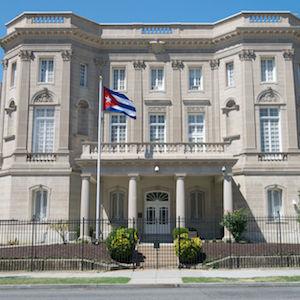The rapprochement with Cuba appears to be short-lived.
Today, the Trump Administration expelled 15 Cuban diplomats due to the mysterious "sonic attack" against nearly two dozen American diplomats and staffers in Havana. According to the New York Times, Secretary of State Rex Tillerson says the expulsion is "due to Cuba's failure to take appropriate steps to protect our diplomats."
It's not a secret that President Trump disagreed with President Obama's attempt to normalize relations with Cuba. Back in June, Mr. Trump took steps to reverse the policy. Today's decision, however, should not be viewed with that political lens.
Protecting the safety of the U.S. Foreign Service and other citizens abroad is one of the most important jobs of the State Department. Therefore, reducing the number of American diplomats in Cuba -- as well as expelling Cuban diplomats from Washington to emphasize the gravity of the situation -- is entirely appropriate, especially since we still have no idea what actually happened.
As Dr. Jamie Wells and I wrote for USA Today, there are several explanations. The most widely discussed possibility is a "sonic device" that blasted loud noises at individuals. The trouble, however, is that not every person with symptoms heard noises. Also, some of the victims have brain damage, but loud noises generally do not cause that.
We believe a likelier explanation is some sort of poisoning, perhaps with a heavy metal or chemical solvent. The resulting nerve damage can disturb normal auditory functions, causing tinnitus (ringing) or hearing loss. Such poisoning could be intentional (perhaps slipped into the embassy staff's food) or accidental (e.g., from environmental contamination).
While Mr. Tillerson's decision to withdraw American diplomats (and expel Cuban diplomats) is eminently defensible, holding Cuba responsible for failing to "protect our diplomats" is less so. The Cuban government appears to be taking the situation very seriously, and Raul Castro has been unusually cooperative. If there really was an assault on American diplomats, it may have been by rogue Cuban agents or a third party.
In 2014, Russia decided to reopen a spy base in Cuba. It is certainly well within the realm of possibility that Russian agents are to blame, especially given that country's long history of researching and developing biological and chemical weapons. If that's the case, then the health of U.S. diplomats may be in danger elsewhere around the globe. For their sake, let's hope this medical mystery is solved soon.




